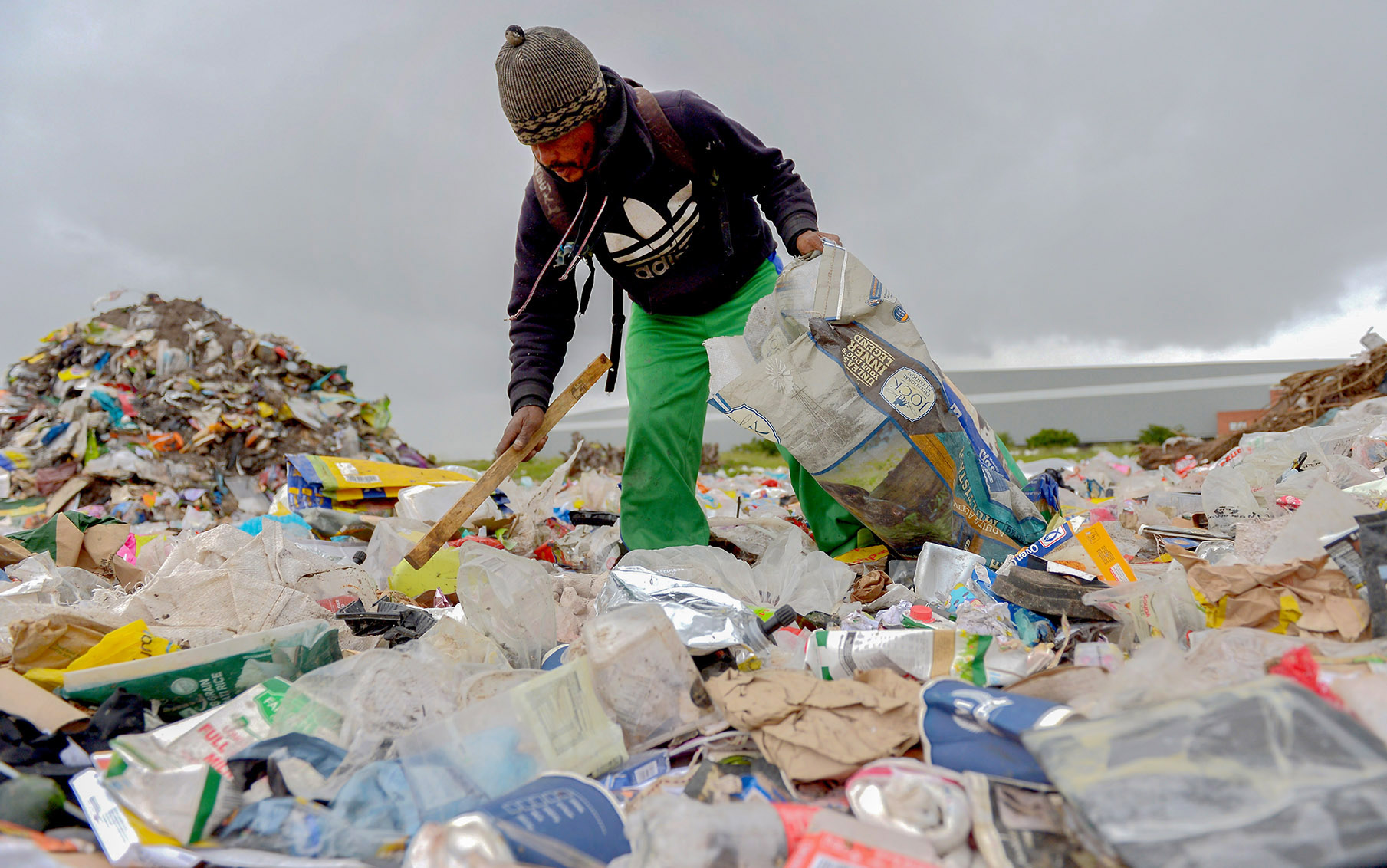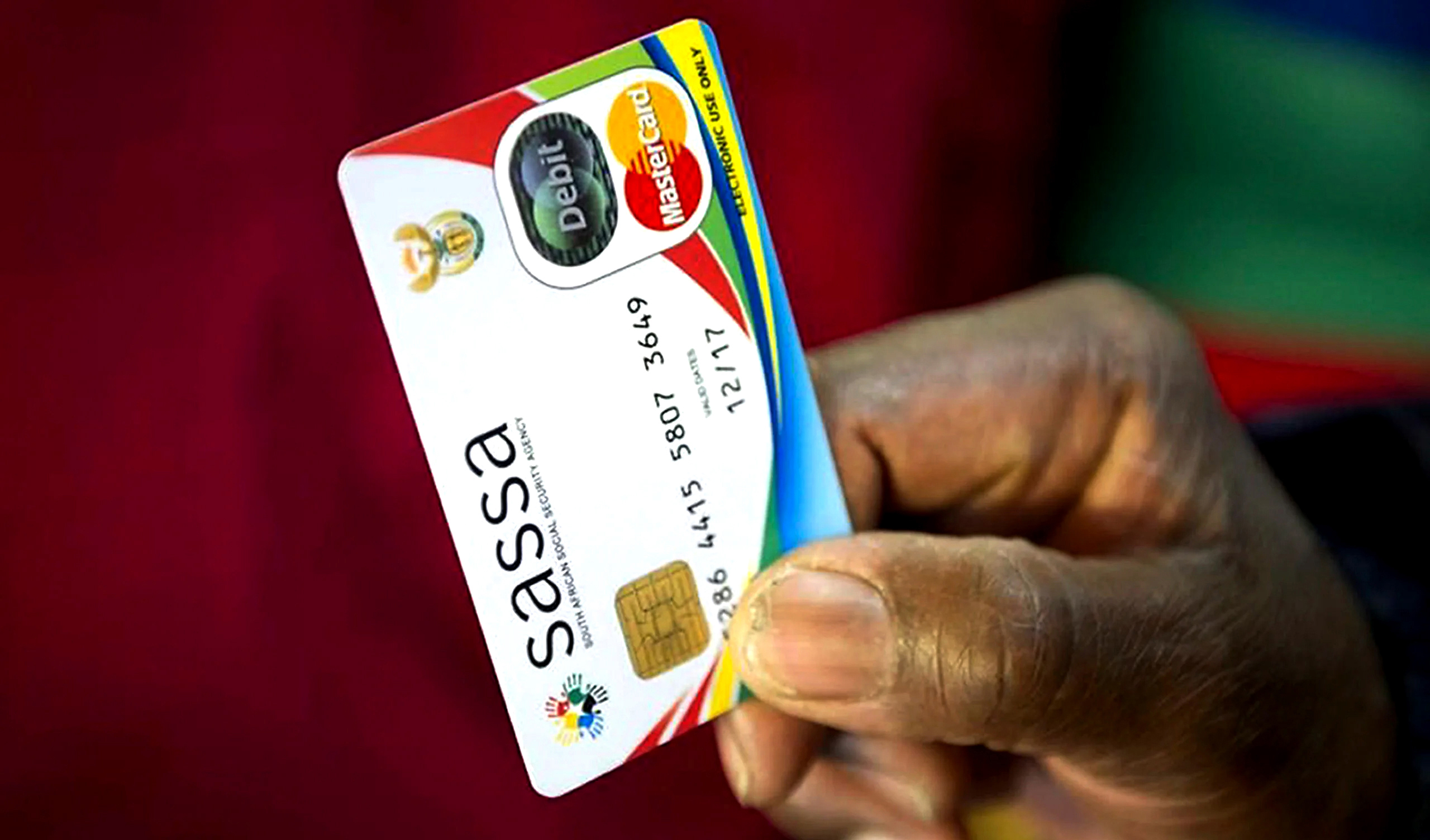The Institute for Economic Justice (IEJ) has again blown the whistle on the government. In a statement released on Wednesday afternoon, the IEJ said that the Treasury and the Presidency had, without civil society consultation, put forward proposals that backtrack on the continuation of the Social Relief of Distress (SRD) grant and discussion of making it permanent with a view to scaling it up.
Instead, says the IEJ, the government is now proposing a jobseekers, caregivers and/or household grant which is “opaque” “convoluted” and “exclusionary”.
“This threatens the livelihoods of millions of people. This is apparent in a set of proposals from Treasury and Presidency that have come to light. While there are connections between the two proposals, they also differ substantially.
 A man in Cape Town rummages through refuse looking for food. (Photo: Gallo Images / Ashley Vlotman)
A man in Cape Town rummages through refuse looking for food. (Photo: Gallo Images / Ashley Vlotman)
“As assessed in a detailed memo released by the IEJ today, the proposals, particularly by Treasury, are deeply problematic, both in terms of the underlying logic and subsequent proposed design,” says the statement.
“There is a clear preference in the document for attaching income support to job-seeking conditionalities. This seems to draw largely from a 2021 World Bank proposal for replacing the SRD grant with a jobseekers’ grant aimed only at active jobseekers. This is highly problematic:
- “It assumes that jobs exist in the economy for people to ‘seek’, ignoring the structural nature of South Africa’s persistent unemployment and the failure of existing job-seeking databases.
- “It rests on the fundamentally patronising and moralistic assumption that without such conditionalities, grants are likely to increase dependency and laziness.
- “The attachment of such conditionalities adds an extensive layer of bureaucracy to the process of applying for the grant — conditionalities were introduced in April 2022 that resulted in the exclusion of as many as five million previous SRD grant beneficiaries.
- “The policy risks having perverse outcomes … categorisation also risks further stigmatisation of poor people.”
The organisation marginally concedes that the Presidency’s proposal in comparison to the Treasury’s is “a more realistic appraisal of various options, and takes a more detailed and thoughtful approach to wider issues. However, it fails to fully follow through on the developmental aspects of its analysis.”
 An elderly woman from Soweto informal settlement in Mthatha, Eastern Cape, with her grandchild. Millions of caregivers could potentially be excluded from the grant system, according to a statement by the Institue for Economic Justice. (Photo: Hoseya Jubase)
An elderly woman from Soweto informal settlement in Mthatha, Eastern Cape, with her grandchild. Millions of caregivers could potentially be excluded from the grant system, according to a statement by the Institue for Economic Justice. (Photo: Hoseya Jubase)
The IEJ says the government is ignoring international evidence that shows grants have proven to be an effective poverty intervention and that the implementation of an employment generation strategy will not be effective on an immediate basis.
Asked to confirm whether the Presidency is indeed tabling such a proposal, spokesperson Vincent Magwenya said: “Departments … formulate proposals that are tabled in Cabinet for approval. Presidency does not implement.”
https://www.dailymaverick.co.za/article/2022-09-07-government-proposals-to-replace-the-srd-grant-will-exclude-millions-of-poor-people-and-be-unconstitutional/
Visit Daily Maverick's home page for more news, analysis and investigations
In response to Maverick Citizen’s request for comment, the Treasury said: “National Treasury cannot provide comment at this stage as discussions are ongoing, and those issues are normally dealt with by the minister during the MTBPS [Medium-Term Budget Policy Statement] or Annual National Budget in February.”
The IEJ also warns that these proposals are likely to be incorporated into the MTBPS coming up in October as the timelines indicated in the Presidency’s proposal show that they are to be finalised by 9 September.
The IEJ says that the proposal could have a potentially “devastating” impact on the lives of millions of poor South Africans, and the institute “will continue to pressurise for an urgent response to our demands, and will engage with a range of stakeholders and civil society actors, including unions, business, and community organisations, to explain our concerns with these dangerous proposals”. DM/MC





